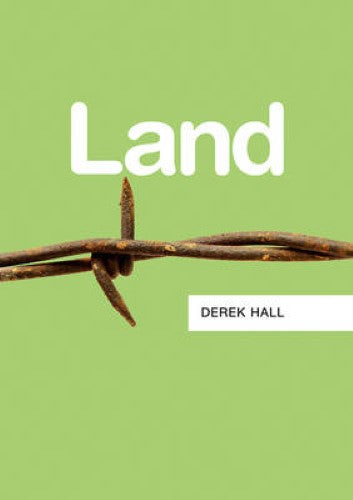Description
Discover the complexities of land with our brand new book, 'Land', published by John Wiley & Sons (UK) in 2012. Recognized by its ISBN 9780745652771, this insightful 176-page read delves into the emotionally charged dynamics surrounding one of humanity's most vital resources – land. Control over land is crucial, influencing a wide array of human activities from local communities to global interactions. This seminal work by Derek Hall offers a groundbreaking framework to understand the geopolitics of land today, addressing prevalent conflicts over territory and property. With in-depth analysis, 'Land' explores significant themes such as inter-state territorial wars, non-governmental organizations defending property rights, and the rampant land grabs by modern corporations and governments. Hall's research spans diverse cases, shedding light on land-related issues from the Afghanistan-Pakistan border to the Canadian Arctic, and from China's urban fringe to rural Honduras. This book is an invaluable resource for students of social sciences and anyone keen on understanding contemporary geopolitics and current affairs. **Note: Shipping for this item is free. Please allow up to 6 weeks for delivery. Once your order is placed, it cannot be cancelled.**
Note: Shipping for this item is free. Please allow up to 6 weeks for delivery. Once your order is placed, it cannot be cancelled.
Condition: BRAND NEW
ISBN: 9780745652771
Year: 2012
Publisher: John Wiley & Sons (UK)
Pages: 176
Description:
Land is one of the world's most emotionally resonant resources, and
control over it is fundamental to almost all human activity. From
the local level to the global, we are often in conflict over the
ground beneath our feet. But because human relationships to land
are so complex, it can be difficult to think them through in a
unified way. This path-breaking book aims to change that by
combining insights from multiple disciplines to develop a framework
for understanding the geopolitics of land today.
Struggles over land, argues Derek Hall, relate to three basic
principles: its role as territory, its status as property, and the
ways in which its use is regulated. This timely introduction
explores key dimensions of these themes, including inter-state wars
over territory, the efforts of non-governmental organizations to
protect property rights and environments in the global South, and
the ?land grabs? attempted by contemporary corporations
and governments. Drawing on a wide range of cases and examples -
from the Afghanistan-Pakistan border to the Canadian Arctic,
China?s urban fringe to rural Honduras - the book provides
new ways of thinking about the political dynamics of land in the
21st century.
This richly detailed and authoritative guide will be of interest to
students across the social sciences, as well as anyone interested
in current affairs and contemporary geopolitics.
Note: Shipping for this item is free. Please allow up to 6 weeks for delivery. Once your order is placed, it cannot be cancelled.
Condition: BRAND NEW
ISBN: 9780745652771
Year: 2012
Publisher: John Wiley & Sons (UK)
Pages: 176
Description:
Land is one of the world's most emotionally resonant resources, and
control over it is fundamental to almost all human activity. From
the local level to the global, we are often in conflict over the
ground beneath our feet. But because human relationships to land
are so complex, it can be difficult to think them through in a
unified way. This path-breaking book aims to change that by
combining insights from multiple disciplines to develop a framework
for understanding the geopolitics of land today.
Struggles over land, argues Derek Hall, relate to three basic
principles: its role as territory, its status as property, and the
ways in which its use is regulated. This timely introduction
explores key dimensions of these themes, including inter-state wars
over territory, the efforts of non-governmental organizations to
protect property rights and environments in the global South, and
the ?land grabs? attempted by contemporary corporations
and governments. Drawing on a wide range of cases and examples -
from the Afghanistan-Pakistan border to the Canadian Arctic,
China?s urban fringe to rural Honduras - the book provides
new ways of thinking about the political dynamics of land in the
21st century.
This richly detailed and authoritative guide will be of interest to
students across the social sciences, as well as anyone interested
in current affairs and contemporary geopolitics.

